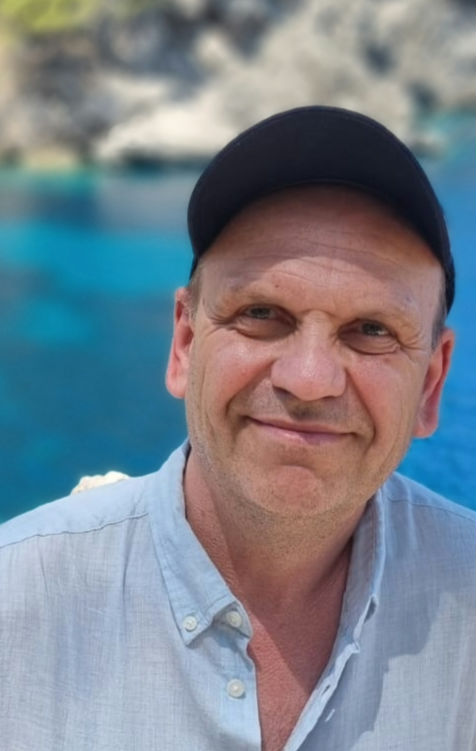Start your attention revolution
- Frank Börner
- Feb 8, 2025
- 4 min read
from Chapter 1 of Julian Bagginis „How to Think Like a Philosopher“
Stop Sleepwalking Through Life: Why Paying Attention Is the Game-Changer You Didn’t Know You Needed
How much of your life do you actually notice? Sounds like a weird question, right? You’re here, you’re awake, you’re living. Obviously, you’re paying attention. But are you, really? Or are you just going through the motions—scrolling through feeds, zoning out in conversations, and jumping from one distraction to the next without stopping to see what’s really happening?
In Chapter 1 of Julian Baggini’s "How to Think Like a Philosopher," we’re asked to do something revolutionary: pay attention. Sounds simple? Sure, but it’s anything but easy. And trust me, once you really get what this means, it’ll change how you think, live, and navigate the world.
When Was the Last Time You Truly Paid Attention?
Here’s the thing: We are more switched on than ever. Notifications, social media, multitasking—our brains are constantly buzzing. And yet, we’re completely switched off where it matters. Listening to others? We’re already crafting our response. Observing the world? We’re trapped in assumptions. Thinking deeply? Distracted before we can get to the good stuff.
Baggini flips this modern reality on its head. He shows us that attention isn’t a background skill—it’s the foundation of clear, focused, and meaningful thinking. Without it, we’re at the mercy of preconceptions, misinformation, and our own mental shortcuts.
Attention sharpens EVERYTHING
Want to know the secret to why philosophers ask the big questions and come up with those wild, mind-blowing ideas? It’s not some magical intelligence or esoteric methods—it’s their attention to detail. They don’t rush past things. They see what’s in front of them, in all its messy, beautiful complexity, and refuse to settle for easy answers.
And this doesn’t just apply to philosophers. Imagine if you truly paid attention in your own life:
Conversations:** What would happen if you fully listened to someone—not thinking about what you’ll say next, but soaking in the meaning behind their words?
Decisions:** What if you questioned every assumption instead of jumping to conclusions?
Yourself:** What if you noticed the biases or distractions shaping your thoughts instead of blindly following them?
Attention changes the way you think—and the way you live.
The Price of Missing the Details
Think attention isn’t that important? Let me hit you with this: What you miss can hurt you. Seriously. Take the Invisible Gorilla Experiment. Participants were asked to count basketball passes in a video, so focused on their task that they missed a guy in a gorilla suit blatantly walking across the screen.
This isn’t just a fun psychology fact—it’s a mirror to your everyday life. How much are you filtering out without even realizing it? How many opportunities, truths, or important signals are slipping by because you’re too distracted to notice them?
Baggini drives this lesson home: Being inattentive doesn’t just make you a less thoughtful person; it could be robbing you of real insight, meaningful ideas, and better relationships.
Listening Like a Philosopher
If there’s one takeaway Baggini insists on, it’s this: Stop half-listening. Listening isn’t waiting impatiently for your turn to talk—it’s an act of attention in its purest form.
This goes beyond hearing someone’s words. It’s about understanding their meaning, empathizing with their perspective, and suspending your own ego long enough to really get it. What’s more, philosophers (and thinkers in general) train themselves to approach ideas with humility—admitting they might not have all the answers while continually digging deeper. Forget arrogance; attention and curiosity are the real superpowers.
Curiosity + Attention = Power
What’s the one thing philosophers do better than anyone else? They get curious—and then they double down with attention. Take Socrates, for example: He famously asked questions so simple they exposed the shaky foundations of other people’s beliefs (hello, humble pie). And how does that start? By paying attention to exactly what someone says rather than blindly assuming you already know the answer.
Baggini challenges us to embrace the same mindset. Don’t settle for the surface. Don’t zone out. Don’t assume. Start diving into the who, what, where, how, and most importantly, the why of everything.
Cut Through the Noise: Here’s the Fix
In today’s world, distractions practically beg for our undivided attention. Social media thrives on rage-fueled debates and oversimplified narratives. Headlines rarely reflect actual content. And all the while, we convince ourselves that reacting fast is better than reacting thoughtfully.
Baggini calls this out as pure noise. Paying attention isn’t about reacting quickly—it’s about pausing, looking closer, and cutting through the blur to find clarity. Attention makes every thought sharper, every decision smarter, and every question more meaningful. And trust me, with the amount of BS out there, we could all use a little focus.
Start Your Revolution of Attention
Why should you care? Because attention is everything. It’s the only way to escape autopilot and take control of your thinking. It’s the foundation of philosophical inquiry and the greatest hack for a meaningful life.
This isn’t about intellectual snobbery—it’s about staying awake, alive, and fully engaged with the world around you. So here’s my challenge: stop what you’re doing right now and start really noticing what’s happening around you. Explore it, question it, break it down.
Trust me, once you commit to paying attention, just like Baggini suggests, your whole world will come alive. And isn’t that what we all want? A life that’s full of depth, clarity, and connection?
So, are you ready to wake up? Let the attention revolution begin.





Comments